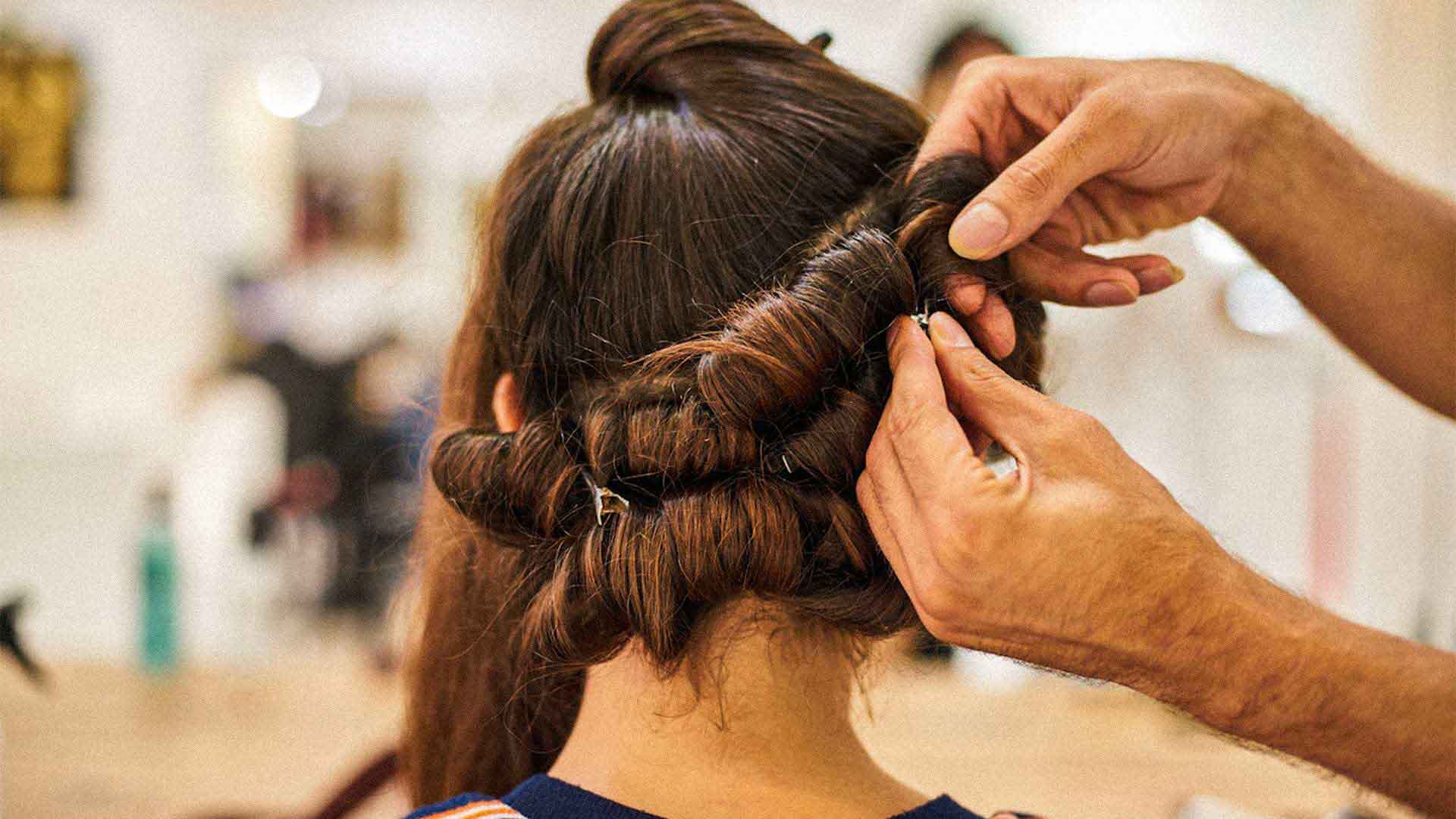Whether you have long, short, straight or curly hair, you probably put it through the wringer daily. Over time that rough treatment takes a toll. While hair serums and glossing treatments may help, the best thing you can do is treat your hair from the inside out. That means eating hair-friendly foods. Here are our top 5.
1. Sweet potatoes: a natural moisturizer
This orange, starchy root vegetable is rich in beta-carotene, a strong antioxidant that helps protect hair from free radicals—those nasty natural particles that damage cells in high concentrations. What’s more, your body converts beta-carotene into vitamin A, which plays a role in producing sebum, an oily substance that moisturizes your scalp and maintains lustrous strands.
Enjoy sweet potatoes roasted, fried or mashed to reap all their hair-nourishing benefits.
2. Eggs: superfood for hair
Eggs are one of the best superfoods for hair. They boost keratin levels, a protein that gives your hair structure, and they’re rich in biotin, a B vitamin that’s essential for preventing breakage and promoting growth. But that’s not all! The yolk in eggs is rich in healthy fats, which help moisturize your hair and scalp.
3. Cold-water fatty fish for a healthy scalp
You probably already know that cold-water fatty fish like salmon, mackerel and sardines are rich in omega-3s. And while these essential fatty acids are most often touted for heart health, they also keep your scalp healthy and improve the circulation of nutrients, oxygen and blood to your hair follicles. Omega-3s also help create healthy oils that keep your hair moisturized, helping to prevent frizz, dandruff and other common problems.
Aim to eat cold-water fatty fish at least twice a week to gain all its benefits.
4. Blueberries: rich in anthocyanins and vitamin C
Whether you eat them one at a time or by the handful, blueberries are great for hair health. They’re packed with antioxidants to fend off free radicals—which can make your hair dry and brittle—and they’re very high in anthocyanins, which help improve circulation and hair growth. They’re also rich in vitamin C, which is essential to making collagen, a protein that helps keep your hair strong and healthy.
Eat a cup of blueberries on their own or add them to your oatmeal, yogurt or salad!
5. Greek yogurt: a natural exfoliator
While the probiotics in Greek yogurt are best known to for promoting gut health, some strains like Lactobacilli are thought to support hair health too. These beneficial strains of bacteria help break down protein, allowing the ones your hair needs to reach your scalp effectively. Greek yogurt also contains lactic acid, which helps exfoliate your scalp to remove dead skin cells, improving circulation and addressing dryness.
Choose a yogurt that’s 2 percent or higher. These are usually lower in sugar and have healthy fats to help keep your hair shiny and soft.
Check out next: 7 ways you’re damaging your hair
About Gabby
Gabby is a Nutritionist with a master’s degree in strategic communications. She loves using her nutrition-fluency with storytelling to encourage positive change. Before Persona, she worked at a mental health clinic helping clients manage stress, anxiety and other mental health issues through diet.
Gabby is just one of the many experts at Persona who are here to accelerate your wellness journey. If you have questions about nutrition or your personalized program, reach out now or book a free appointment with Gabby or another of our amazing nutritionists.
*These statements have not been evaluated by the Food and Drug Administration. This product is not intended to diagnose, treat, cure, or prevent any disease.
This information is not intended as a substitute for the advice provided by your physician or other healthcare professional, or any information contained on or in any product label or packaging. Do not use the information from this article for diagnosing or treating a health problem or disease, or prescribing medication or other treatment. Always speak with your physician or other healthcare professional before taking any medication or nutritional, herbal, or homeopathic supplement, or using any treatment for a health problem. If you have or suspect that you have a medical problem, contact your health care provider promptly. Do not disregard professional medical advice or delay in seeking professional advice because of something you have read in this article.

